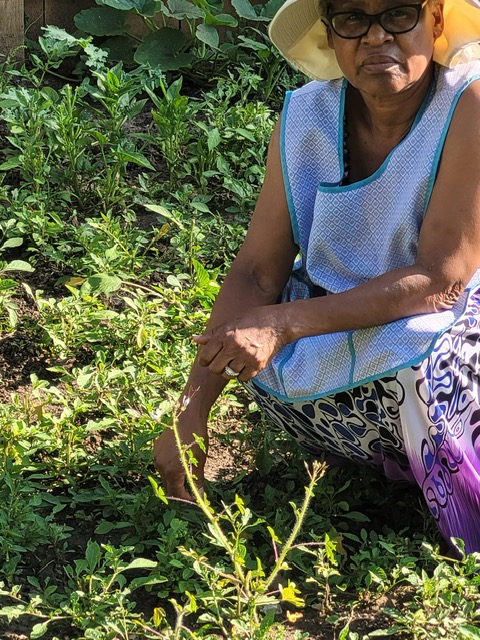This is a guest blog post from Lina “Mama Tshutshu” Nyaronge, Community Connector at Sharing Our Roots and Climate Land Leader. It is the final in a three-part series from Mama Tshutshu sharing perspectives on climate change, agriculture and community.
In my Kenyan culture we have what we call a practice of unity. Unity is an expansive concept that includes oneness, relationship, friendship and togetherness. You can see this reflected in our community structure: as families grow, the next generation typically builds houses near their parents. Once you have given birth to a child, that child belongs to the community, and the community shares the responsibility to bring up that child well. We share food; we share anything that’s supposed to be shared. You want to do the right thing, because many eyes are on you! And when someone has a problem, the problem becomes for the community.

In the same way, we should all be involved in rebuilding healthy ecosystems, because this affects all of us. We are all dependent on clean air to breathe, clean water to drink, healthy soil to grow food. When we are all involved, we work as a team, and we achieve the end goal. This is called unity of work – and we must be united in the work of preventing anything that can spoil our environment. It’s not the work of one person; we must be many.
In rural Kenya we don’t have running water in our houses. Instead we go to the river to get water, so we must be very careful with the river, because any chemicals that go into the river will go into the drinking water.
You cannot pretend that you are doing the right thing. You must do the right thing, because it’s for our health and that of our children and our grandchildren.
Another example: In Kenya we had a big problem with plastic bags. They became a menace. They were getting mixed into our soil, animals were eating them and dying, soil cultivators would get tangled. Plastic bags were spoiling the ecosystem. So from the community elders to the government, everyone was involved in implementing the ban on single-use plastic bags. If you were found using a plastic bag, all eyes were on you, because you were spoiling the soil that we need to grow food.
This cultural practice of unity can help our communities grow more resilient as the climate changes. We see this at Sharing Our Roots where the community of farmers has adopted methods of controlling pests that reduce the need for pesticide application to soils. These farmers are focused on building healthy soil and are adding more drought-resistant crops to their rotation in response to unpredictable weather patterns caused by climate change.
As a community we are learning how to prevent ourselves from using anything that goes against our health and the health of our ecosystem.
I was asked recently about my vision for agriculture in the United States. I believe agriculture here needs to learn from and share ideas with Indigenous people. We must ensure everybody has a place. We cannot push the original stewards of this country to a small place. We should be growing food for humans to consume, and we should be working to attract young people, including the Indigenous young people of this country, to farming.
Knowledge must be passed.
If knowledge is passed, it will grow from the community to the county to the county government to the state government and beyond. If knowledge is passed, things can go well. The cultural practice of unity encourages us to advise each other, share knowledge, sit and discuss, come to the table and do the right thing for our children and grandchildren – for all the future children of the world. You are invited to the table!
Read the first in this series: Climate perspective from Kisii, Kenya to Northfield, Minnesota
Read the second in this series: “Our vegetables are a delicacy here”